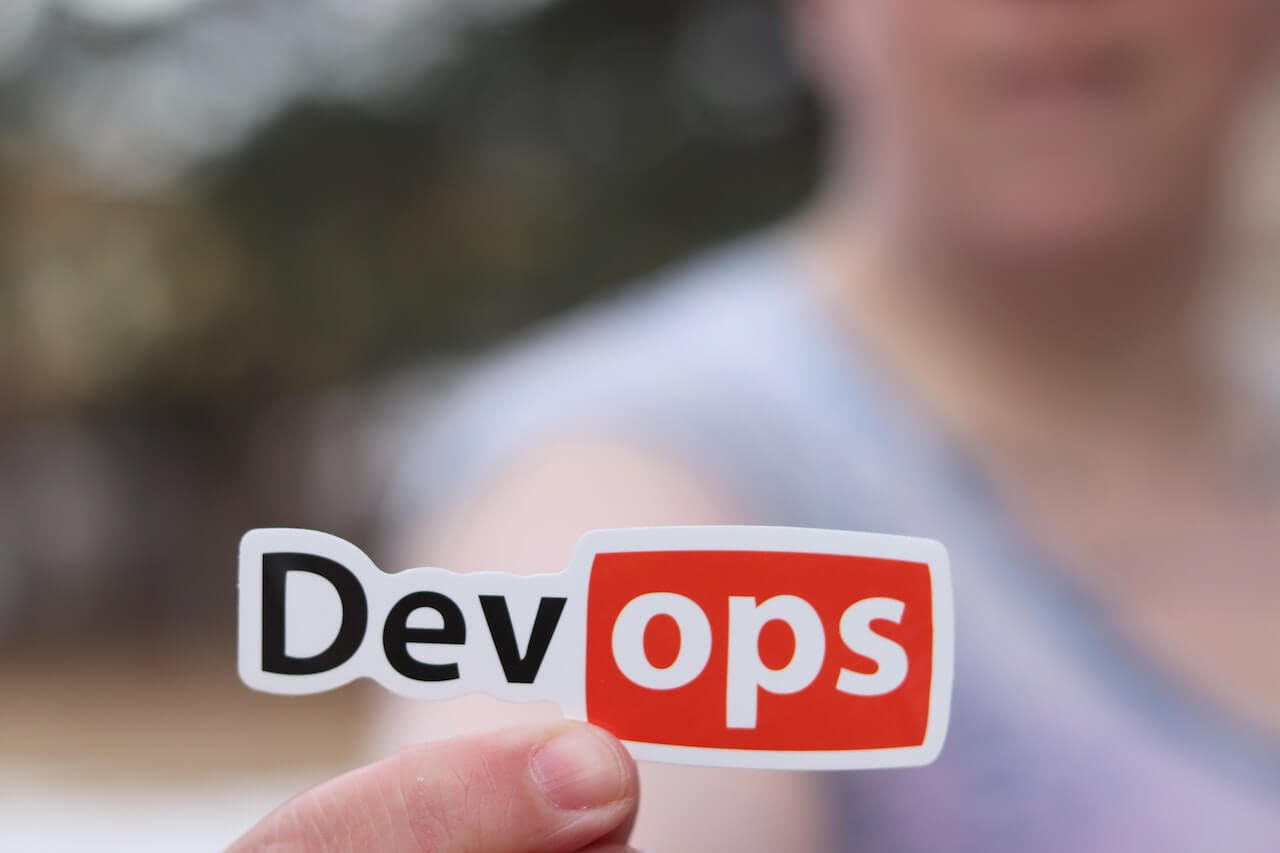With the increasing sophistication and popularity of artificial intelligence (AI), it is obvious that AI is currently impacting and transforming businesses and their processes in so many ways.
The field of project management and software product development is not left out in this evolution as there is now a higher emphasis on security, as well as greater efficiency in the software product development lifecycle.
Naturally, product developers and project managers are always looking at ways to harness AI in developing quality products while eliminating inefficiencies and errors.
In this article, we will be delving into key questions arising when it comes to software development such as “how can a DevOps team take advantage of artificial intelligence to build the right products and workflow?”
When it comes to business and tech, the truth is that for those who really know, the right use of artificial intelligence can change the entire game.
And as for DevOps, when it comes to testing, coding, releasing, and automation, AI makes it better on practically every count.
What is DevOps?
DevOps is an approach to software product development with a focus on collaboration, communication, and integration between the software developers and the operations team which consists of information technology (IT) professionals.
As the name suggests, it is a combination of software development (Dev) and operations (Ops) teams.
DevOps as a term was originally coined in 2009 by Patrick Dubois. Over the years, it has been adopted as a methodology that aims to unify the various projects and ideas from the agile software product development community’s shared goals.
DevOps aims to create an environment where the building, testing, and deployment of software is as quick as possible and more reliable.
The core of this methodology is building a system where individuals with diverse skill sets work in a coordinated manner to deliver value through the building and delivery of secure and fast software.
To automate the processes between the development and operations teams, the DevOps methodology combines tools and practices to achieve this.
The use of DevOps allows development and operations teams to create high-quality deliverables faster through iterations, teamwork, rapid feedback, and automation.

What are the Benefits of DevOps?
For businesses using DevOps for their development and operational processes, these are some of the benefits they are expected to enjoy:
1. Faster Deployment
Customers are more satisfied with faster and more frequent delivery of features and updates. This way, the business is sure to have a competitive advantage in the competitive software market.
2. Improved Product Quality
A disconnect between the development team, operations, and users is a recipe for a low-quality product.
A collaboration between the development team and the operations teams backed with rapid user feedback will enable the development of quality software products.
3. Innovative Drive from Automation
The DevOps methodology is designed to detect and correct software defects quickly and efficiently. With repeated testing, flaws are promptly discovered and corrected.
This is a significant advantage over the traditional model for project management and product development.
4. Continuous Software Delivery
The burden of delivering usable software products along with improved features and updates is not the singular responsibility of the development team, but a function also of all operations departments concerned.
Thus the speed of software delivery is faster unlike in traditional development models.
5. Minimized Production Costs
Collaboration between the development and operations teams helps in trimming production and management costs of the organization’s departments as the costs for updates and maintenance are both under a unified focal point.
6. High Transparency and Productivity
With the focus of the team on collaboration, there is improved communication within the team across development and operations. This is the bedrock of higher productivity and efficiency across the teams and employees in general.
7. Improved Business Agility
Companies that use DevOps can ensure agile business processes and gain a competitive advantage in the market. Enterprises can transform their entire business with increased scalability.
8. Automation
Automation is the core of DevOps. The advantages of automation in general are well-known in software development, but they become even more significant when you consider how long it takes to complete certain tasks manually.
Automation saves time and removes the factor of human error.

What is Artificial intelligence (AI)?
Artificial Intelligence is the use of computers to perform tasks that usually require human intellect. These tasks include decision-making, writing, language translation, speech recognition, and visual perception among others.
The ability of a computer program or machine to think and learn is referred to as Artificial Intelligence. It is also referred to as the field of study that makes computers smart.
Artificial Intelligence as a term was coined in 1956 by John McCarthy and he defined it as the science and engineering of creating machines with intelligence.

Why is AI needed in DevOps?
DevOps is focused on the faster delivery of high-quality software products in an efficient way. To improve the delivery and performance of the software, AI is needed.
AI when used to support DevOps produces improved teamwork, automation, collaboration, and problem-solving capability of the team.

How is AI Doing the Transformation of DevOps?
AI is software that simulates human reasoning or problem-solving abilities. Now how does this help in transforming DevOps and how can a DevOps team take advantage of Artificial Intelligence (AI)?
The most important thing to understand about DevOps is that it is not synonymous with AI. While a lot of people actually think that they are, in reality, they are not synonymous although they complement each other.
AI is one of many technologies transforming DevOps. It learns from data or experience and can then make decisions and predictions.
The transformation of DevOps by AI is a particularly exciting case because, unlike other technologies, it will have an impact at every stage of the process pushing the transformation across the board.
Early on, AI could help automate some time-consuming and skill-required tasks such as code reviews, test execution, and deployment. This frees up employees to work on more important tasks increasing productivity.

What are the Benefits of Artificial Intelligence (AI) in DevOps?
There are many ways in which Artificial intelligence (AI) and Machine Learning (ML) are essential to the improvement of the workflow of DevOps. These include:
1. Automation
When it comes to the development of software products, doing tasks manually has its fair share of disadvantages. It can be time-consuming, and there is an inherent risk of error due to human factors.
Using AI to automate these tasks is very beneficial as it enables tasks to be done faster and with greater efficiency.
2. Highly Effective Teams
As a developer or IT operations personnel, the use of AI is inevitable as it is everywhere in technology. Teams can collaborate better and be more effective when different types of data are collated in one place. For example on a dashboard.
With this, there is improved collaboration and faster decision-making.
3. Problem-Solving
Problem-solving is the purpose of project management and software development. The use of AI brings innovation to solving problems and reduces the burden on human resources.

How Can a DevOps Team Take Advantage of Artificial Intelligence?
Development and operations teams can improve operations with the use of AI. Decision-making can be faster with the aid of AI’s ability to process data faster and learn from past experiences.
While there are a lot of benefits of AI in DevOps, the question remains how can a DevOps team take advantage of Artificial Intelligence and reap these benefits and transformation?
There are lots of ways the DevOps teams can take advantage of AI. These include:
1. Code Testing
Testing of codes is important for development teams. This is to check for the quality of codes and analyze for bugs in order to improve the quality.
For best results, automated testing is the way to go. Artificial Intelligence helps to analyze codes for bugs, as well as training developers to write codes better.
With this technology, there is a reduction in bug rate of up to 50 percent. The development team can then focus their efforts on developing more features for the product than fixing bugs.
2. Automated Product Deployment
AI provides significant advantages for the DevOps team with continuous deployment and automated testing. This enables improved collaboration and problem-solving.
AI-assisted development tests software at each stage of its development lifecycle to ensure that it is ready for release. For any issues with the code, it can easily be detected quickly and fix them before they become major headaches.
This saves both time and money because you won’t have to redo your entire process because one small component of your program isn’t working properly.
3. Gathering Requirements
When developing software products or managing projects, it is important to define the product requirements or project scope from the project initiation.
If the right requirements are not gathered, it becomes difficult to build a product that will deliver value to the stakeholders and end-users by solving problems and the team may just end up creating new problems instead.
With the use of AI tools, requirements gathering becomes more accurate over time as the tool’s intelligence systems understand the natural language more.
This helps the DevOps team and the stakeholders to collaborate better and build the right products.
4. Monitoring and Alerting
Softwares require adequate monitoring and the ability to alert the team to immediately respond when the need arises. One way DevOps teams can take advantage of Ai is in this aspect.
AI provides reliable monitoring of systems, analysis, and alerting the team based on how critical the situation is. This way, the DevOps teams can focus on actual development without interruptions.
5. Effective Team Work
Effective communication is essential for collaboration in DevOps teams, streamlining operations, and leveraging artificial intelligence (AI).
This way, when making decisions on automation and optimization of processes, it is critical that every member of the team is heard and is part of a larger group effort.
AI also helps the DevOps team work more effectively by increasing automation, supporting problem-solving, and making it easier to collaborate as a team.

Is DevOps being replaced by AI?
The way DevOps teams utilize and interact with data is actually changing as a result of AI. Additionally, AI-based technologies provide DevOps teams more freedom to decide wisely and to have faith in shared tools to fix technical issues.
It is a fact that AI is altering the way DevOps teams use and interact with data and using AI tools to give DevOps teams more leeway to make better decisions and rely on shared tools to resolve technical errors.
However, the combination of AI and DevOps is in its early stages, and AI tools are not yet advanced enough to replace all of DevOps any time soon.
In the information age, AI enables DevOps teams to automate a wide range of operations and processes. It is reasonable to expect AI to change how humans perform tasks.
As transformative as it may be, DevOps’ change will be gradual rather than abrupt.
Nonetheless, the combination of DevOps and AI is the most efficient way to code, test, and compile software.
AI can help DevOps teams collaborate and be more productive by detecting and resolving problems quickly while simultaneously improving automation.
In retrospect, organizations should see DevOps as the beginning of a business-centric journey that will become automated in the coming years.
And, as the IT environment becomes more automated, DevOps teams will require AI to manage complex tasks more than ever before.
Companies can expect AI-based DevOps to fully take off within the next five years. This transformation will have a significant impact on human involvement and IT operations.
Read Also: How To Incorporate Agile Into Your Company’s Initiatives

What are the Limitations of using AI in DevOps?
While AI is a very powerful and valuable tool for DevOps teams with lots of benefits, like every technology it has its limiting factors.
Despite these limitations, artificial intelligence (AI) can be a valuable tool for DevOps teams.
When used correctly, artificial intelligence (AI) can assist DevOps teams in automating repetitive tasks, optimizing workflows, and improving system performance.
However, before employing AI to solve problems, it is critical to consider its limitations.
1. AI’s Imperfection
AI is not without flaws and can make mistakes. If an AI system is improperly trained or configured, it may make decisions that are detrimental to the company or its customers.
For example, if an AI system is not properly configured, it may unintentionally cause outages or performance issues.
2. Cost of Implementation and Maintenance
AI implementation and maintenance can be costly. To use AI effectively, DevOps teams require data, computing power, and skilled personnel.
Data is frequently the most expensive and difficult component of the equation, as collecting and labeling data sets for training AI models can be time-consuming and costly.
Furthermore, AI systems necessitate ongoing maintenance and updates as new data is collected and new problems emerge.
3. Ethical Concerns
As AI systems improve in sophistication, over time they will make more decisions that affect people’s lives. AI systems, for example, could be used to determine who is eligible for a loan or who is a good candidate for a job.
These decisions can have a significant impact on people’s lives, so it’s critical to make sure AI systems are ethical.
Conclusion
Artificial Intelligence provides numerous benefits to the DevOps team, including increased productivity and product security.
There are numerous ways for a DevOps team to benefit from AI, ranging from incorporating it into their product development cycle to using it to control data.
The onus however lies on the DevOps team to be able to take advantage of the numerous benefits of AI in DevOps.





